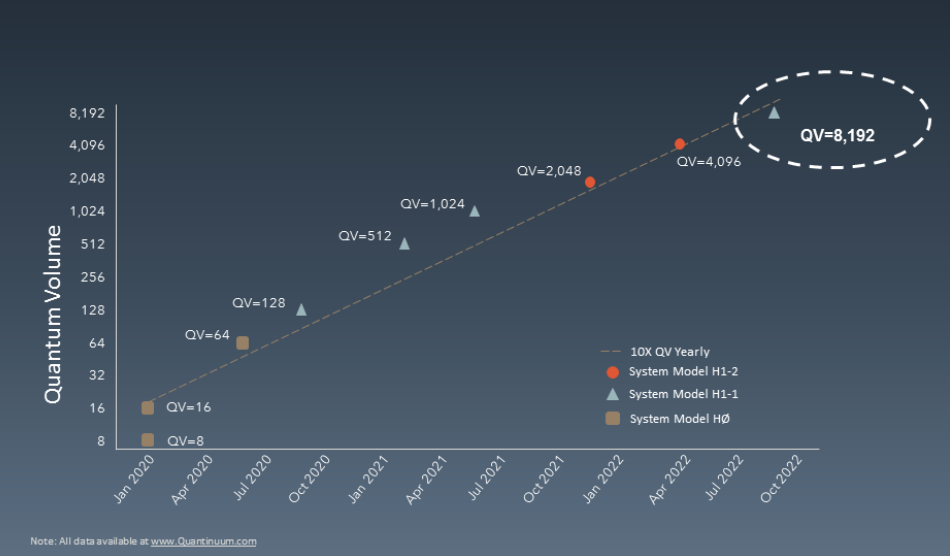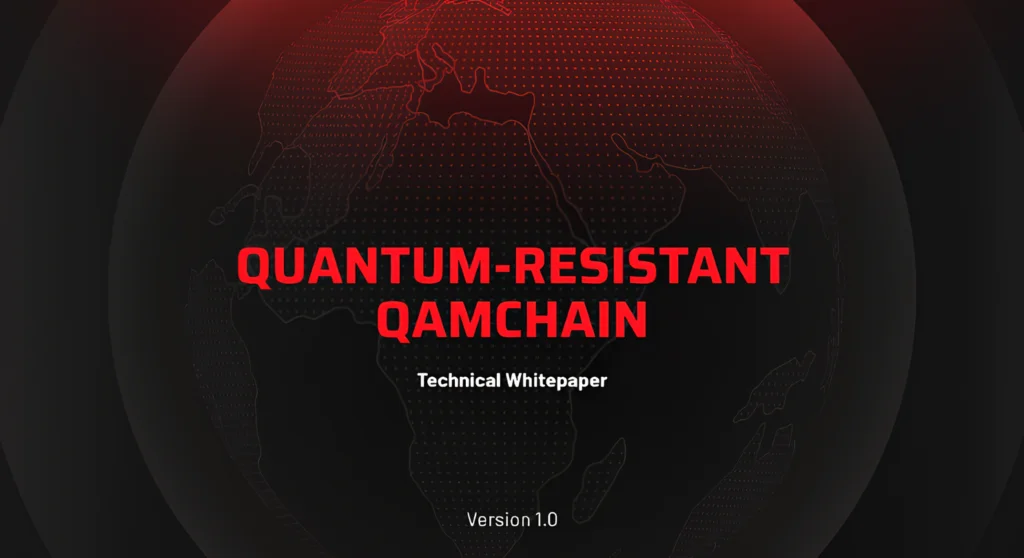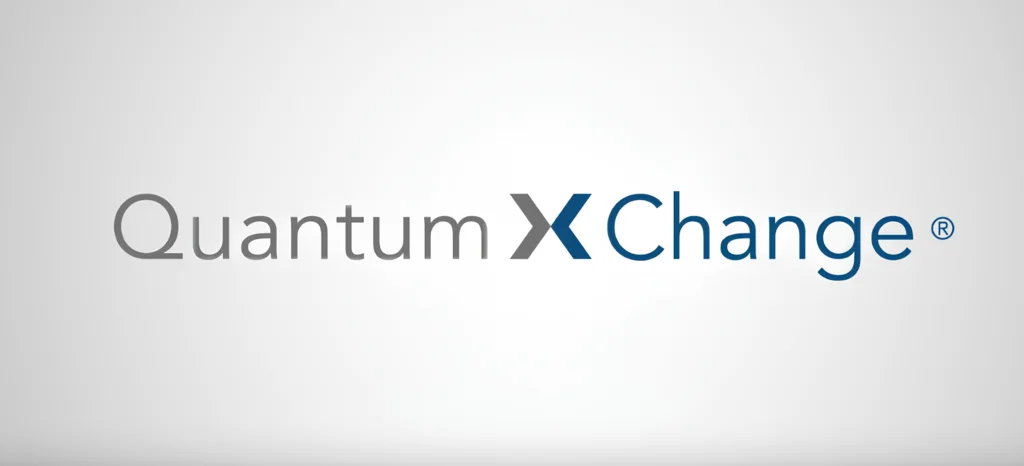Insider Brief
- Quantinuum President and COO Tony Uttley announced another quantum volume record, hitting 8192.
- Uttley also reported on arbitrary angle two-qubit gates which is helping the company make strides toward more efficient circuit construction and higher fidelity.
- The company revealed its had more than 500,000 downloads of its open source TKET software, which company officials report is critical in developing a community of quantum developers.
Quantinuum President and COO Tony Uttley briefed IEEE Quantum Week attendees that the company on three significant accomplishments during his recent keynote address event and discussed in a blog post.
Uttley said the achievements included new arbitrary angle gate capabilities on the H-series hardware, another System Model H1 hardware quantum volume (QV) record, and recognition of over 500,000 downloads of Quantinuum’s open-sourced TKET, a world-leading quantum software development kit (SDK). He added that all of these represented actionable acceleration for the quantum computing eco- system.
“Quantinuum is accelerating quantum computing’s impact to the world,” Uttley said during his address titled, A Measured Approach to Quantum Computing. “We are making significant progress with both our hardware and software, in addition to building a community of developers who are using our TKET SDK.”

Quantum Volume
This latest quantum volume measurement of 8192 is particularly noteworthy and is the second time this year Quantinuum has published a new QV record on their trapped-ion quantum computing platform, the System Model H1, Powered by Honeywell.
According to Uttley, arbitrary angle two-qubit gates are the key behind the boost in quantum volume. The new approach leads to more efficient circuit construction and higher fidelity.
Researchers now rely on single qubit gates — rotations on a single qubit — or a fully entangling two-qubit gate. Using these building blocks it’s possible to build any quantum operation. However, with arbitrary angle gates, instead of just having a two-qubit gate that’s fully entangling, scientists can use a two-qubit gate that is partially entangling, Quantinuum researchers explain.
“This new capability allows for several user advantages. In many cases, this includes shorter interactions with the qubits, which lowers the error rate,” said Dr. Brian Neyenhuis, Director of Commercial Operations at Quantinuum. “This allows our customers to run long computations with less noise.”
The arbitrary angle gates are also a perfect match for Quantinuum’s trapped-ion architecture, according to Neyenhuis.
“With the quantum-charged coupled device (QCCD) architecture, interactions between qubits are very simple and can be limited to a small number of qubits which means we can precisely control the interaction and don’t have to worry about additional crosstalk,” he said.
Dr. Jenni Strabley, Senior Director of Offering Management at Quantinuum, added that this is one of three innovations to improve efficiency in the H1 design.
“Quantinuum’s goal is to accelerate quantum computing. We know we have to make the hardware better and we have to make the algorithms smarter, and we’re doing that,” Strabley said. “Now we can also implement the algorithms more efficiently on our H1 with this new gate design.”
The Quantinuum team demonstrated the use of arbitrary angle two-qubit gates in a study of non-equilibrium phase transitions, the technical details of which are available on the pre-print server arXiv.
Half-Million-Plus TKET Downloads of TKET
Uttley also reported that more than 500,000 users have downloaded TKET, Quantinuum’s advanced open source software development kit for writing and running programs on gate-based quantum computers. Developers use TKEY to optimize their quantum algorithms, reducing the computational resources required.
According to Quantinuum leadership, TKET’s availability and portability are more than just a technology — they are helping build a community of quantum developers. A quantum development community is an important step toward universal adoption of quantum computing.
The number of downloads includes multiple users in many companies and academic institutions, according to the blog post.
Quantinuum CEO Ilyas Khan said, “Whilst we do not have the exact number of users of TKET, it is clear that we are growing towards a million people around the world who have taken advantage of a critical tool that integrates across multiple platforms and makes those platforms perform better. We continue to be thrilled by the way that TKET helps democratize as well as accelerate innovation in quantum computing.”
Arbitrary angle two-qubit gates and other recent Quantinuum advances are all built into TKET.
“TKET is an evolving platform and continues to take advantage of these new hardware capabilities,” said Dr. Ross Duncan, Quantinuum’s Head of Quantum Software. “We’re excited to put these new capabilities into the hands of the rapidly increasing number of TKET users around the world.”
For more market insights, check out our latest quantum computing news here.















